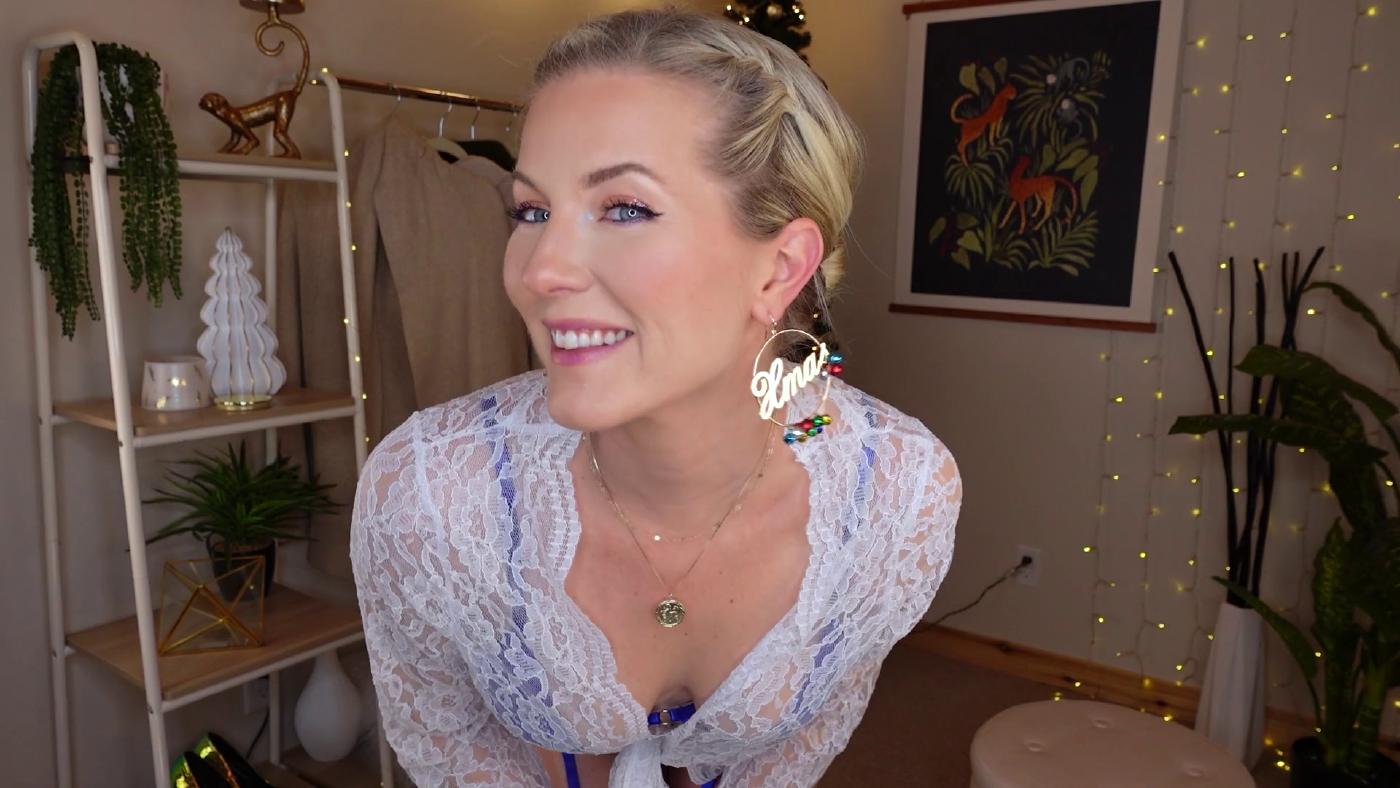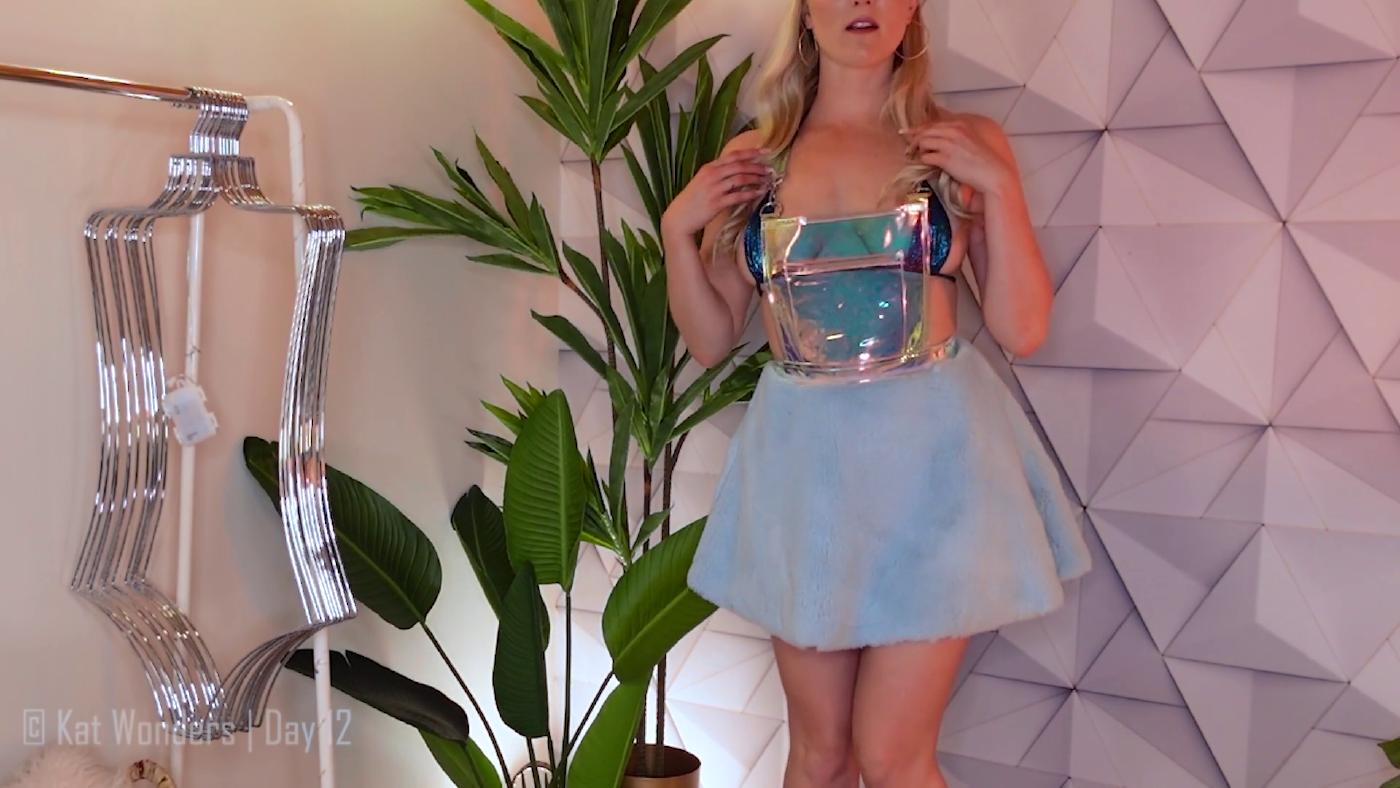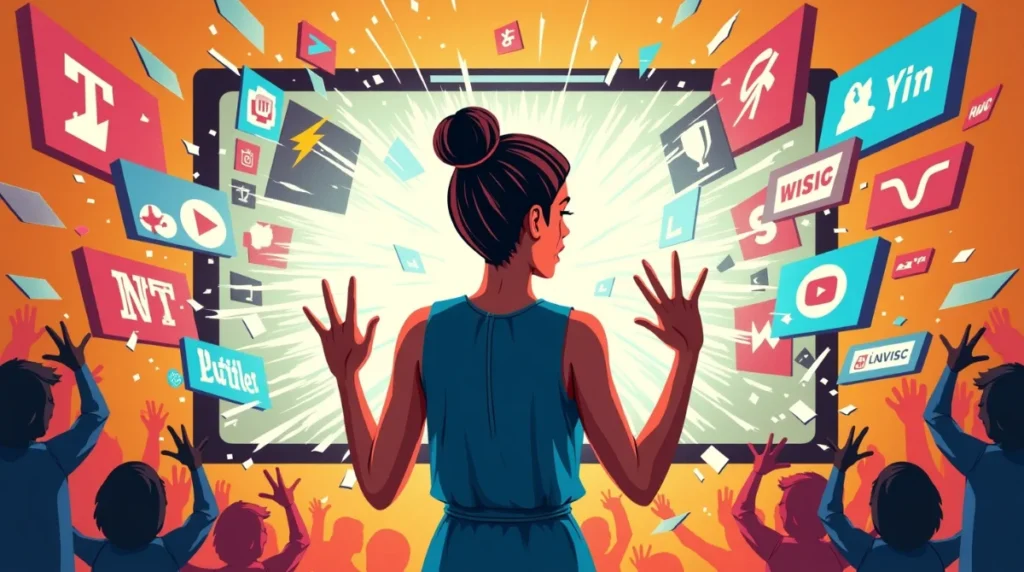Is the allure of instant fame and viral success worth sacrificing ethical boundaries? The "influencers gone wild" phenomenon, a stark reflection of our digital age, suggests a resounding, and often troubling, "yes." This trend exposes the darker underbelly of social media, where the pursuit of engagement often trumps responsibility and common sense.
The phrase "influencers gone wild" has become a chilling shorthand for online creators who cross the line, engaging in behaviors that range from the merely irresponsible to the outright dangerous. This digital Wild West is fueled by algorithms that reward sensationalism and a culture that often prioritizes shock value over substance. The goal? To stay relevant, amass followers, and, ultimately, monetize their online personas. The methods, however, are often questionable, raising serious concerns about the ethics of influence and the impact on society.
To better understand this evolving landscape, let's examine some of the key facets of the "influencers gone wild" phenomenon. This exploration will include examples, discuss the risks, the concept of influence, and the overall impact on society.
The term "influencers gone wild" serves as an umbrella for online creators engaging in behavior that can be described as reckless, irresponsible, or even dangerous. This encompasses a wide array of actions, from performing illegal stunts and sharing offensive content to promoting products or services that are fake or pose a risk to consumers.
These actions, frequently designed to garner attention, often go viral, spreading quickly across various social media platforms. Ironically, while aiming for fame and notoriety, this type of online behavior often backfires, resulting in negative publicity, backlash from followers, and even legal consequences.
Consider these examples of influencers gone wild over the years:
- Nudity in front of a sacred tree
This trend isn't limited to any particular platform. While TikTok and Instagram are often at the forefront, the phenomenon extends to YouTube, Twitter, and other social media ecosystems. The core issue is consistent: the pressure to remain relevant, the promise of financial gain, and the resulting willingness to engage in behavior that might be considered unethical or even harmful.
In the pursuit of virality, the focus shifts from quality content and genuine engagement to spectacle and sensationalism. This can lead to a degradation of online discourse, the spread of misinformation, and a distorted view of reality. Furthermore, it can encourage copycat behavior among followers, particularly younger audiences, who may see these actions as a path to popularity and acceptance.
The allure of this often hides a chaotic and untamed world beneath the surface. The quest for likes, shares, and followers can be an all-consuming pursuit, pushing individuals to their limits and beyond. This creates a dangerous environment where ethical considerations are often secondary to the desire for attention.
The core of the issue lies in the role of influencers in modern society and the power they wield. As they gain fame, influencers assume a significant responsibility in shaping societal values, consumer trends, and cultural conversations. Their recommendations influence purchasing decisions, their opinions can sway public discourse, and their actions can set trends that millions follow. This level of influence demands a high degree of accountability.
However, not all influencers uphold ethical standards. Some are driven by greed, others by a desire for attention, and some simply lack the awareness of the impact of their actions. The consequences of this can be severe. For example, influencers may promote products that are dangerous or ineffective. They might spread false information, contributing to the erosion of trust in established institutions and expertise. Or they may engage in behavior that is simply offensive or harmful, setting a bad example for their followers.
The rise of social media has fundamentally altered the media landscape. Traditional gatekeepers, such as newspapers, television stations, and magazines, no longer hold the same level of control over information dissemination. Anyone with a smartphone and an internet connection can become a content creator, building an audience and influencing public opinion. While this democratization of media has its advantages, it has also created challenges.
One of the major challenges is the lack of regulation. Unlike traditional media, social media platforms are often under-regulated, meaning that there are fewer checks and balances on the content that is shared. This can lead to the proliferation of misinformation, hate speech, and other forms of harmful content.
Another challenge is the blurring of lines between advertising and editorial content. Influencers often promote products and services without clearly disclosing that they are being paid to do so. This can mislead consumers and erode trust in the advertising industry.
The ethical implications extend beyond the individual influencer. The platforms themselves have a responsibility to ensure that their users are not being exploited or exposed to harmful content. However, they often struggle to balance their desire to maximize profits with their responsibility to protect their users.
Understanding the term "influencers gone wild" also requires an analysis of the motivations behind such behavior. What drives individuals to engage in actions that are often risky, offensive, or potentially illegal? There are several factors at play:
- The Pressure to Stay Relevant: In the fast-paced world of social media, trends come and go quickly. Influencers feel constant pressure to stay ahead of the curve and maintain their audience's attention. This pressure can lead them to take extreme measures, pushing boundaries to generate buzz and avoid being forgotten.
- The Pursuit of Financial Gain: Success on social media can translate into substantial financial rewards. Influencers can earn money through advertising revenue, brand sponsorships, and product sales. The potential for financial gain can be a powerful motivator, encouraging them to engage in behavior that they might otherwise avoid.
- The Desire for Validation: Social media platforms are designed to provide instant feedback. Likes, comments, and shares offer influencers a constant stream of validation, reinforcing their behavior and making them more likely to repeat it. The addictive nature of this feedback loop can contribute to a lack of self-awareness and a willingness to prioritize external approval over ethical considerations.
- The "Wild West" Mentality: The lack of clear regulations and the perceived lack of consequences on social media can create a "Wild West" mentality. Influencers may feel that they can get away with actions that would be unacceptable in the real world. This perception, combined with the anonymity that the internet provides, can embolden them to push boundaries and take risks.
This phenomenon, widely discussed under the banner of "influencers gone wild," exposes the risks of an influencer culture that prizes shock value and sensationalism over truth and responsibility. It highlights the importance of media literacy, critical thinking, and ethical behavior in the digital age. It is also a call to action for social media platforms to take greater responsibility for the content that is shared on their platforms and to create a safer, more ethical online environment.
The term "influencers gone wild" has roots in the broader discussion of the dark side of social media fame. It is a reminder that, while the world of online influence can appear glamorous and exciting, it also comes with inherent risks. Fame and fortune can come at a price a price that many influencers are willing to pay, even if it means sacrificing their reputation, their well-being, or even their freedom.
Understanding the impact of "influencers gone wild" requires a critical examination of the cultural climate that enables such behavior. Several factors contribute to the problem:
- The Erosion of Trust: The constant barrage of information and the prevalence of misinformation online have eroded trust in traditional institutions and expertise. This can make it more difficult to distinguish between fact and fiction, leaving audiences more susceptible to manipulation.
- The Culture of Consumption: The relentless pursuit of consumerism, fueled by advertising and marketing, can create a culture that values material possessions and instant gratification. This can lead individuals to make impulsive decisions, including purchasing products or services promoted by questionable influencers.
- The Desire for Social Acceptance: The pressure to fit in and be accepted by one's peers is a powerful motivator, particularly for young people. Influencers often represent the ideals that are valued in a particular culture, making their approval a highly sought-after commodity.
- The Lack of Accountability: The lack of clear regulations and the perceived lack of consequences for unethical behavior contribute to a culture of impunity. Influencers may be more likely to engage in risky or harmful behavior if they believe that they will not be held accountable for their actions.
To address the issue of "influencers gone wild," several steps can be taken. These include:
- Promoting Media Literacy: Educating individuals about how to critically evaluate online content is essential. This includes teaching people how to identify misinformation, recognize bias, and understand the techniques used by influencers to manipulate their audiences.
- Strengthening Regulations: Governments and social media platforms need to work together to create clear regulations that govern the behavior of influencers. This could include rules about advertising, disclosure, and the promotion of dangerous or harmful products or services.
- Increasing Accountability: Holding influencers accountable for their actions is crucial. This can include legal action, public shaming, and the removal of content that violates ethical guidelines. Social media platforms should also develop better systems for reporting and removing inappropriate content.
- Supporting Ethical Influencers: Recognizing and supporting influencers who prioritize ethical behavior is essential. This can include promoting their content, partnering with them on campaigns, and highlighting their positive contributions to society.
- Fostering a Culture of Responsibility: Creating a culture of responsibility online requires a shift in mindset. Individuals need to be encouraged to think critically, question authority, and take responsibility for their actions. Social media platforms can play a role in this by promoting ethical behavior and discouraging sensationalism.
The "influencers gone wild" phenomenon is a complex issue with deep roots in the digital landscape. Addressing it requires a multi-faceted approach that involves individuals, social media platforms, governments, and the media. By taking action, we can work towards creating a safer, more ethical, and more responsible online environment.
This is a continuous discussion that requires a dynamic and flexible understanding. The media ecosystem and the nature of social media are always changing. To stay updated, it is important to be aware of the trends and controversies in this area.
Here, we will explain the "influencers gone wild" platform and its role in sharing news and insights regarding root causes and controversies and how far they have impacted society.
The phrase "Influencers Gone Wild" itself is not a platform in the traditional sense, but rather a descriptive term used to categorize and analyze a type of behavior on social media. It's a concept that highlights instances where social media personalities engage in questionable or inappropriate conduct, often to increase their visibility or for other personal gains. Platforms such as news outlets, blogs, and social media accounts may discuss or report on the phenomenon, analyzing specific incidents or trends.
The influence of social media influencers has dramatically changed society. Understanding this shift is essential to grasp the effect of "influencers gone wild."
These are some of the key ways that influencers are impacting society:
- Shaping Consumer Trends: Influencers can promote products, services, and lifestyles. As they can impact the decisions of their followers, and influence what they buy or what they do.
- Changing Cultural Conversations: Influencers shape public conversation by addressing important social issues, setting trends, and supporting diversity. This helps reshape cultural values.
- Impacting Political Views: Influencers are also getting involved in political campaigns. As they grow in popularity, they have an impact on how people think and vote.
- Redefining Communication: Social media influencers have changed how we interact with others and the media. Social media platforms have led to more informal and direct communication.
In essence, understanding "influencers gone wild" necessitates recognizing the significant impact of social media figures on our daily lives. It requires us to be more aware, media literate, and critical of the content we consume online.


